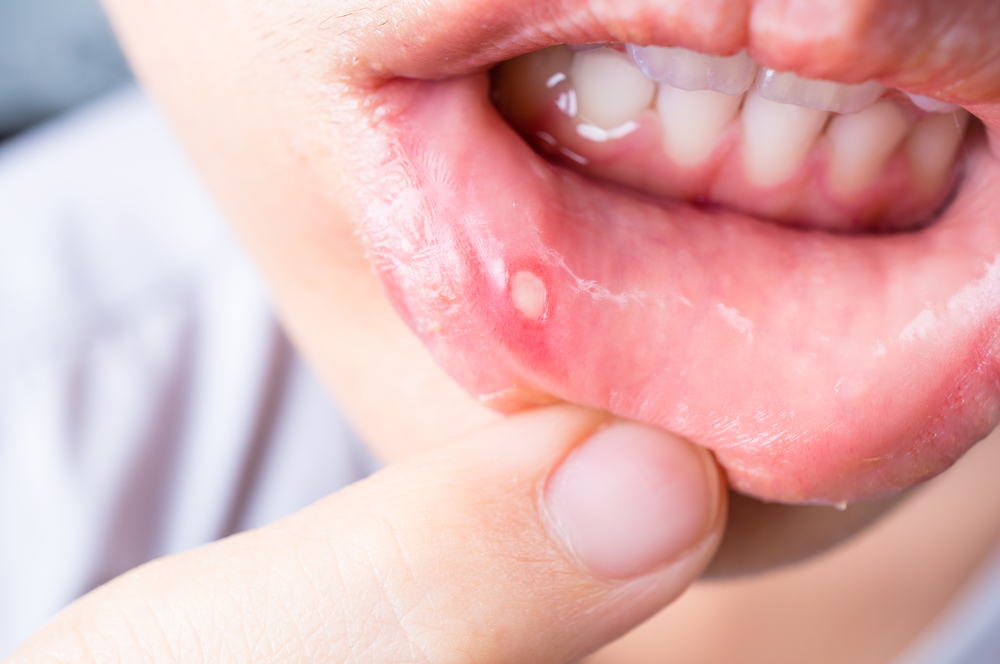Mouth ulcers are a common condition that cause small, painful sores to appear inside the mouth. They can show up on the gums, tongue, cheeks, or soft palate. While they usually heal on their own within a week or two, they can be bothersome, especially when eating or speaking.
These ulcers usually look like round or oval sores with a white or yellow centre and a red border. They can vary in size, from small to larger ones. Some people get one ulcer at a time, while others may have several at once.
Mouth ulcer symptoms
Mouth ulcers can cause discomfort and irritation, and the symptoms can vary depending on the location and severity of the ulcer.
Here are the most common symptoms:
- Discomfort, especially while eating, drinking, or speaking
- Tender and sensitive to touch
- Burning sensation around the ulcer
- Swelling in the surrounding tissues
- Metallic or bitter taste in the mouth
What causes ulcers in mouth?
Understanding what leads to mouth ulcers can help to prevent them in the future.
Here are the most common causes:
- Accidentally biting the inside of your cheek
- Stress, anxiety or fatigue
- Ill-fitting dentures or braces
- Vitamin deficiencies like B12 and iron
- Hormonal changes like periods and pregnancy
Frequently asked questions about mouth ulcers
Can stress cause mouth ulcers?
Yes, stress can weaken your immune system, making you more susceptible to mouth ulcers. Practice stress management techniques to reduce their occurrence.
How can I prevent mouth ulcers?
To prevent mouth ulcers, maintain good oral hygiene, avoid trigger foods, manage stress, and address any underlying health issues.
What foods trigger mouth ulcers?
Spicy, acidic, and citrus foods can trigger mouth ulcers in some people. Avoiding these foods may help reduce the risk of developing ulcers.


